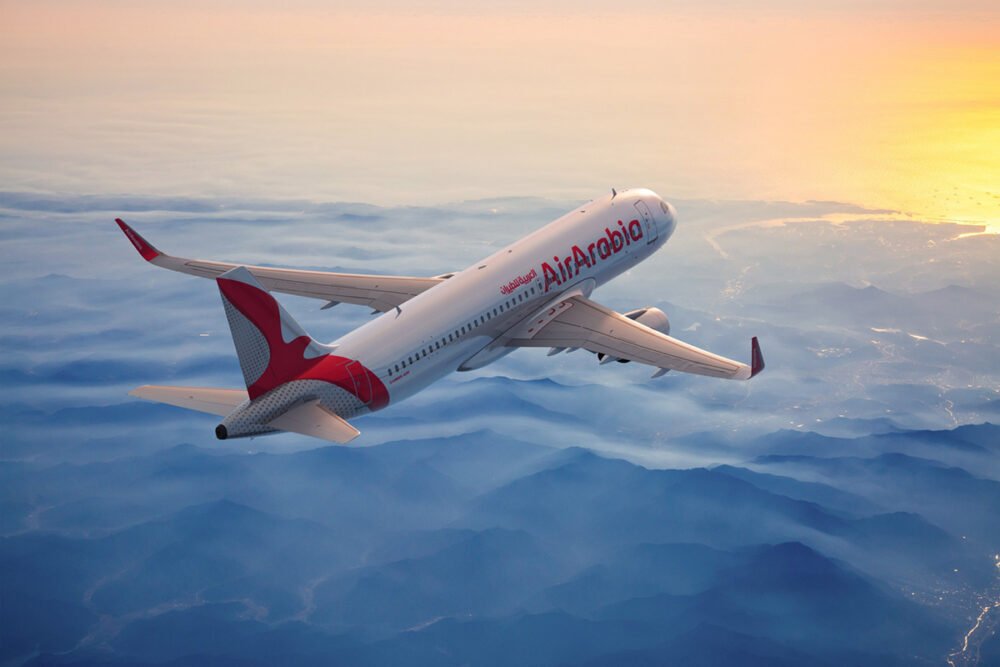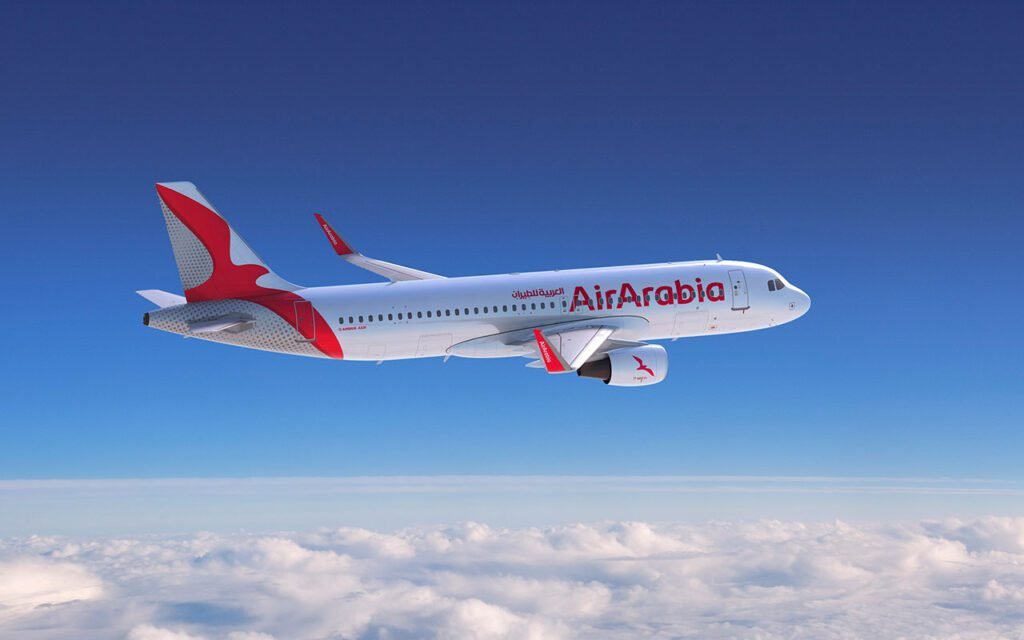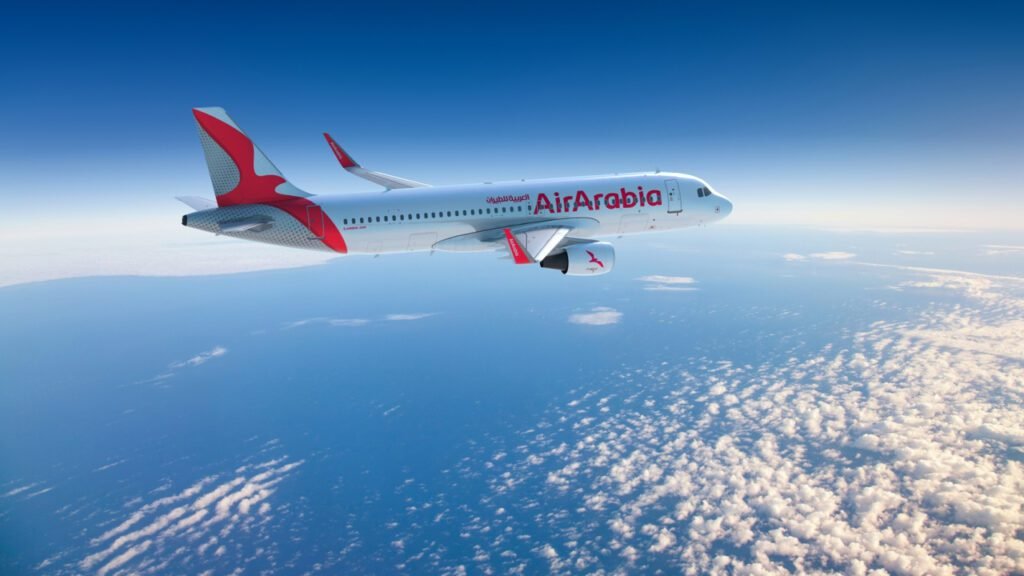Air Arabia Abu Dhabi fleet expansion plans have reached a new milestone in 2025 as the airline announced it will add two brand-new Airbus A320 aircraft to its fleet. This strategic move signals the airline’s commitment to growth and improving connectivity across the region and beyond.
Since its launch in July 2020, Air Arabia Abu Dhabi has quickly become a key player in the low-cost aviation market in the UAE. The airline, a joint venture between Air Arabia and Etihad Airways, has steadily grown its network, offering affordable travel options to both leisure and business travelers.
With the addition of two new A320s, Air Arabia Abu Dhabi is not only strengthening its fleet but also setting the stage for an ambitious expansion strategy in 2025 and beyond.

A closer look at Air Arabia Abu Dhabi’s growth story
When Air Arabia Abu Dhabi began operations, it started with just two aircraft and a handful of destinations. Despite launching during the challenging pandemic period, the airline managed to gain traction quickly thanks to its value proposition: affordable fares, reliable service, and efficient operations.
Over the years, the airline has grown its fleet and expanded its network to include several key cities in the Middle East, Africa, Central Asia, and the Indian subcontinent. The upcoming Air Arabia Abu Dhabi fleet expansion with two additional Airbus A320 jets is expected to further strengthen its presence in these regions.

Why the Airbus A320?
The Airbus A320 is a popular choice for airlines worldwide, especially for low-cost carriers. The aircraft is known for its fuel efficiency, lower operating costs, and excellent performance on short- to medium-haul routes.
For Air Arabia Abu Dhabi, the A320 is a natural fit. Each aircraft is configured to carry 174 passengers in an all-economy layout, maximizing capacity while ensuring passenger comfort.
Moreover, the A320’s advanced technology helps reduce emissions and supports the airline’s commitment to sustainability. The decision to add two more A320s highlights Air Arabia Abu Dhabi’s strategy to operate a young, modern, and environmentally friendly fleet.

New opportunities with the Air Arabia Abu Dhabi fleet expansion
The Air Arabia Abu Dhabi fleet expansion will create numerous opportunities for both the airline and its passengers.
Enhanced connectivity
Adding two new aircraft will allow Air Arabia Abu Dhabi to increase flight frequencies on popular routes and introduce new destinations. Travelers can expect more choices, better timings, and improved connectivity to cities that were previously underserved.
Supporting Abu Dhabi’s vision
Abu Dhabi has ambitious plans to strengthen its position as a global aviation hub. Air Arabia Abu Dhabi’s growth contributes directly to this goal by boosting inbound and outbound travel, stimulating tourism, and creating job opportunities in aviation and related sectors.
Competitive edge
With more aircraft and expanded routes, Air Arabia Abu Dhabi can better compete with other regional carriers. The airline can attract price-sensitive customers while maintaining high operational standards, which has always been a core part of its brand promise.
The impact on passengers
For passengers, the Air Arabia Abu Dhabi fleet expansion translates to a more seamless and enjoyable travel experience.
More destinations mean new cities to explore. Passengers can look forward to new routes opening up in Asia, Africa, and possibly even Europe.
Greater flexibility comes from increased flight frequencies, giving travelers more options to choose schedules that best fit their plans.
Improved services are another benefit. As the fleet grows, the airline continues to invest in customer service, onboard experience, and digital tools to make flying easier and more convenient.
A sustainable approach to growth
Sustainability is at the heart of Air Arabia Abu Dhabi’s long-term strategy. By choosing the Airbus A320, the airline aligns its fleet expansion with environmental goals.
The A320 family offers a significant reduction in fuel burn per seat and lower carbon emissions compared to older-generation aircraft. This helps Air Arabia Abu Dhabi move toward a greener future while keeping operating costs in check, a win-win for the airline and its passengers.
Boosting the UAE aviation sector
The Air Arabia Abu Dhabi fleet expansion doesn’t just benefit the airline; it’s also a boost for the UAE’s broader aviation and tourism industries.
Supporting tourism is one of the key outcomes. More flights and destinations mean more tourists visiting Abu Dhabi and the wider UAE. The country’s rich cultural offerings, modern attractions, and business opportunities continue to attract millions of visitors every year.
Economic growth is another important aspect. A larger fleet means more jobs, both directly (pilots, cabin crew, engineers) and indirectly (airport services, hospitality, logistics). This contributes to economic diversification and supports the UAE’s national vision for growth beyond oil.
Future plans beyond 2025
While the addition of two A320s in 2025 is a significant step, Air Arabia Abu Dhabi’s ambitions don’t stop there. The airline has hinted at further fleet expansions in the coming years, along with plans to increase its route network to more distant markets.
There are also possibilities of exploring new aircraft types in the future, including longer-range jets that can open up entirely new markets for the airline.
In addition to fleet and route growth, Air Arabia Abu Dhabi is investing in technology to enhance the customer experience, streamline operations, and improve efficiency. These initiatives include upgraded mobile apps, improved online booking systems, and enhanced loyalty programs designed to retain frequent travelers.

Challenges ahead
While the outlook is positive, Air Arabia Abu Dhabi will also face challenges as it grows.
Intense competition is a constant factor. The Middle East aviation market is highly competitive, with many well-established players. Standing out will require continuous innovation and maintaining low fares without compromising service quality.
Fluctuating fuel prices remain one of the most significant expenses for airlines. Managing these effectively will be key to sustaining profitability.
Evolving passenger expectations are another challenge. Modern travelers expect more than just a seat at a good price. They want seamless digital experiences, greater personalization, and strong sustainability commitments.
Air Arabia Abu Dhabi will need to address these demands to stay ahead.
Conclusion: A promising flight path
The Air Arabia Abu Dhabi fleet expansion with two new Airbus A320 aircraft in 2025 is more than just a fleet update. It is a powerful statement of intent. It reflects the airline’s commitment to growth, customer satisfaction, and sustainability.
With these new aircraft, Air Arabia Abu Dhabi is set to offer even more competitive options for travelers while strengthening Abu Dhabi’s status as a global aviation hub.
For passengers, this expansion promises more routes, better schedules, and a continued focus on affordable, reliable air travel. For the UAE, it supports economic diversification, job creation, and the national vision of being a leader in global aviation.
As we look ahead, it is clear that Air Arabia Abu Dhabi’s journey is only just taking off. The coming years will be crucial as the airline continues to spread its wings and redefine what travelers can expect from a low-cost carrier in the region.
Do follow UAE Stories on Instagram
Read More: Lincoln Rise Real Estate Dubai South: New Residential Project Launch












